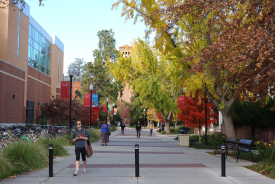Adults, who have suffered physical abuse or had addicted parents, tend to take more time to recuperate from depression, according to a University of Toronto study.
For the study, researchers analyzed remission in a sample of 1,128 depressed Canadian adults from the National Population Health Survey. Depressed adults were observed for alternative years until they gained remission. The maximum time they took to recover from depression was 12 years.
"Our findings indicated that most people bounce back. In fact, three-quarters of individuals were no longer depressed after two years," reported co-author and Professor Emeriti Tahany M. Gadalla. However, not everyone recovered at the same rate.
Researchers said that struggling during childhood has long-lasting effects.
"The average time to recovery from depression was 9 months longer for adults who had been physically abused during their childhood and about 5 months longer for those whose parents had addiction problems" says lead author Esme Fuller-Thomson, Sandra Rotman Endowed Chair in the University of Toronto's Factor-Inwentash Faculty of Social Work.
Marla Battiston, co-author and MSW graduate, said that previous studies showed that abused children or those who had addicted parents become more susceptible to depression. These factors slow depression recovery rates in adults.
Researchers feel that traumatic childhood experiences disrupt the development of the hypothalamic-pituitary-adrenal (HPA) axis, which affects stress regulation.
"In many studies, adult depression has been characterized by HPA axis hyperactivity," says co-author and recent PhD graduate, Sarah Brennenstuhl. "This link is an important avenue for future research."
The study has been published in the journal Social Psychiatry and Psychiatric Epidemiology.
© 2025 University Herald, All rights reserved. Do not reproduce without permission.








